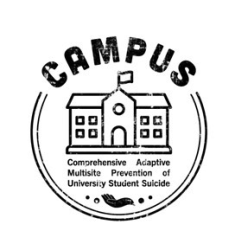
Suicide is the second leading cause of death among college students, and Rutgers researchers are at the forefront of addressing this public health crisis. Graduate School of Applied and Professional Psychology (GSAPP) Professor, and Director of the Dialectical Behavior Therapy Clinic at Rutgers University (DBT-RU), Shireen L. Rizvi, Ph.D., ABPP, is one of four principal investigators (PI) in an innovative study that seeks to improve suicide prevention among this population. Rutgers University-Newark’s Counseling Center serves as one of the study sites.
Suicidal ideation and suicide-related behaviors are frequent presenting problems at college counseling centers. While some students respond quickly to treatment, others do not and require additional resources. The Comprehensive Adaptive Multisite Prevention of University Student Suicide (CAMPUS) trial aims to test more targeted, adaptive strategies to better treat the range of students experiencing suicidal ideation.
In CAMPUS—the first large-scale, NIH-funded, multi-site, randomized controlled trial of its kind—researchers are evaluating four sequences of treatment among college students at risk of suicide who are seeking treatment at university counseling centers. Other participating institutions are Duke University, University of Nevada-Reno, and University of Oregon.
“College students are experiencing high rates of mental health difficulties, and many are struggling with suicidal thoughts and behaviors,” said Rizvi. “It is imperative that we learn how to deliver treatments that are most likely to work within a college counseling setting where students receive their care.”
Rizvi added, “Traditionally, these settings work with time-limited care models, so determining what sequence of care works for which students will ideally get them the help that is most likely to work the quickest to alleviate their suffering.”
Details of the study are as follows:
- Treatment is provided in two stages.
- In Stage 1, student participants are randomized to four to six weeks of either a suicide-focused treatment (Collaborative Assessment and Management of Suicidality, or CAMS) or treatment as usual.
- Those who respond well to either intervention will receive monthly monitoring.
- Those who do not respond to Stage 1 treatment will be re-randomized to one of two higher intensity/dosage intervention options for an additional one to eight weeks: CAMS (either continued or administered for the first time) or Counseling Center Dialectical Behavior Therapy, which includes individual therapy and skills training groups.
- The primary endpoint is differential reduction in suicidal risk at the end of each treatment stage and at three-month follow-up.
We look forward to seeing the results. For more information, visit: Dr. Shireen Rizvi; DBT-RU; RUN-CC.





